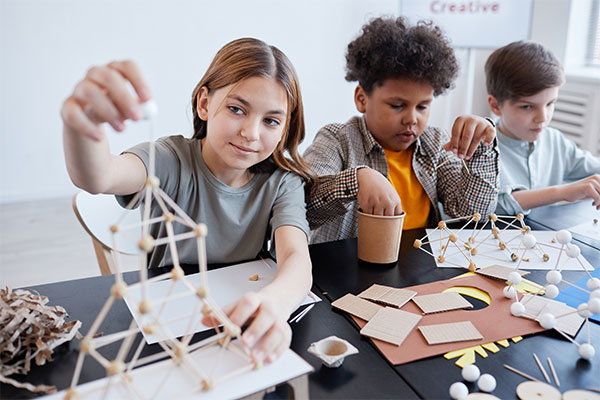In the intricate dance of life, the art of personality grooming emerges as the key to leaving a lasting imprint on the canvas of human interactions. As we navigate the intricate web of personal and professional relationships, the importance of cultivating a refined and impactful persona becomes undeniable. This journey of self-discovery and enhancement is guided by actionable tips for effective personality grooming. From self-reflection to continuous learning, communication mastery to the art of networking, cultural awareness, and beyond, each tip serves as a compass, directing us toward unveiling our best selves.
Understanding the Essence of Personality Grooming:
Personality grooming is not merely a cosmetic endeavor; it is a holistic process that involves refining various aspects of one's character, behavior, and appearance. It goes beyond the surface, delving into emotional intelligence, adaptability, and cultural sensitivity. The essence lies in presenting an authentic and positive version of oneself to the world.
Tip 1: Self-Reflection - The Gateway to Personal Evolution:
Embarking on the journey of personality grooming begins with self-reflection. This is not merely looking in the mirror; it is about delving into the depths of one's values, aspirations, and motivations. Take the time to ponder your strengths, weaknesses, and goals. Craft content around self-reflection, such as "The Transformative Power of Self-Reflection in Personal Development" or "A Journey Within Unveiling Potential Through Introspection."
Tip 2: Continuous Learning for Personal Brilliance:
In a world that thrives on innovation and change, embracing continuous learning is key to personal brilliance. Develop a growth mindset and stay informed about current trends, industry standards, and emerging technologies. Create content around ongoing education, such as "The Impact of Lifelong Learning on Personality Development" or "Sculpting a Dynamic Persona through Continuous Learning."
Visit: benefits of adaptability
Tip 3: Mastering the Art of Communication:
Clear and effective communication is a linchpin of personality grooming. Whether verbal or non-verbal, communication skills play a pivotal role in how we are perceived. Hone your ability to express ideas with clarity and impact. Engage in activities like public speaking, participate in discussions, and actively seek constructive feedback to refine your communication style. Transform into the best version of yourself with our dynamic personality development course in Delhi – where confidence meets charisma and success becomes a habit!
Tip 4: Networking – Building Bridges for Personal and Professional Triumph:
Networking is a dynamic facet of personality grooming that extends beyond exchanging business cards. Develop strong interpersonal skills in traditional face-to-face interactions and the digital realm. Attend networking events, join professional groups, and leverage social media platforms to build a robust network.
Tip 5: Cultural Awareness – Embracing Diversity for Global Impact:
In an interconnected world, cultural awareness is not just a virtue but a necessity. Personality grooming involves developing an understanding and appreciation for diverse cultures, beliefs, and perspectives. This not only enriches personal experiences but also fosters effective communication in a globalized environment.
Visit: challenges of digital age
Tip 6: Emotional Intelligence – Navigating Social Dynamics:
Understanding and managing emotions, both your own and others, is a hallmark of effective personality grooming. Cultivate empathy, practice active listening, and be attuned to the emotions in various situations. Write about "The Role of Emotional Intelligence in Personal and Professional Success" or "Empathy as a Catalyst for Positive Interactions."
Tip 7: Time Management – Cultivating Efficiency:
A well-groomed personality includes the ability to manage time effectively. Develop strategies to prioritize tasks, set realistic goals, and maintain a balance between personal and professional commitments. Craft content on "Time Management Tips for a Well-Groomed Lifestyle" or "Balancing Act: Juggling Priorities for Personal Growth." Join our personality grooming classes and embark on a transformative journey, where you'll gain the skills needed to stand out in any crowd, leaving a positive impact in every interaction.
Tip 8: Adaptability – Embracing Change with Grace:
In a rapidly evolving world, adaptability is a key trait of a well-groomed personality. Embrace change, be open to new ideas, and demonstrate resilience in facing challenges. Share insights on "The Art of Adapting: Navigating Change with Confidence" or "Building Resilience for a Dynamic Personality."
Conclusion: Tips for Personality Grooming
As we conclude this expedition into the nuances of effective personality grooming, it is evident that the journey toward self-improvement is both an art and a science. The tips shared here are not mere suggestions; they are guideposts pointing towards a more refined, confident, and culturally aware version of ourselves.
In a world where impressions matter, personality grooming is the key to unlocking your full potential. It is a continuous journey, an ongoing commitment to becoming the best version of yourself. As you integrate these tips into your daily life, remember that effective personality grooming is not just a choice; it's a pathway to personal and professional brilliance.
So, embrace the transformative power of personality grooming, navigate the intricate dance of self-reflection, continuous learning, effective communication, networking, cultural awareness, emotional intelligence, time management, and adaptability. Let these tips be the orchestrators of your symphony, resonating through every facet of your life.





















